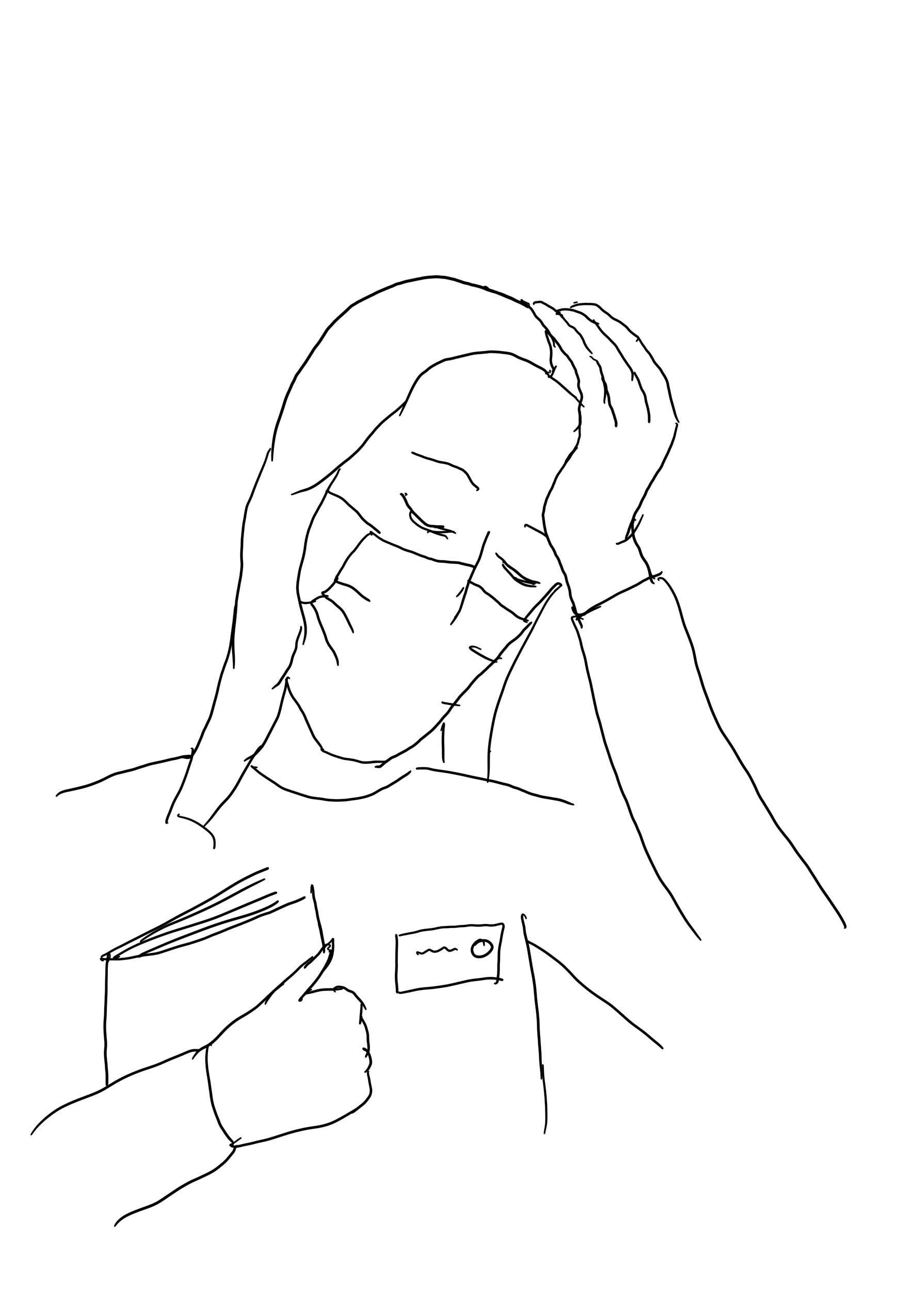
The Inoculation Episode 7 - On the Fence/ Co-production with Are We Europe
In this collaborative episode between Are We Europe and The Inoculation, we look into how parents find their way with so much confusing information online, and what approach to vaccine hesitancy works.
Across Europe, some countries are about to finish vaccinating the most vulnerable residents against COVID-19. It’s time to offer the jab to the general population -- and some are not only refusing vaccines, but also calling on others to shun them. Research shows that neither more fact-checks nor more experts will tilt the population’s attitudes towards vaccines.
In this collaborative episode between Are We Europe and The Inoculation, we look into how parents find their way with so much confusing information online, and what approach to vaccine hesitancy works.
You can read more about the politics of vaccination in Italy in Time magazine, Newsweek and Nature. You can find the study mentioned in the podcast here.
Our interpreter in this episode was Romina Spina. Our assistant producers were Andrei Popoviciu and Priyanka Shankar.
Our reporting is supported by Journalismfund.eu, Media Lab Bayern and Alfred Toepfer Stiftung. Please subscribe to this show on Apple Podcasts, Audible, Google Podcasts, Spotify or another platform of your choice. Follow us on Facebook as @theinoculation, on Twitter as @TInoculation, and on Instagram as @the_inoculation. You can also follow Are We Europe on all these social networks or become a member at areweeurope.com/member.
Here is the transcript of the episode:
Eva Schaper 0:05
On the fence about vaccine decisions
Jabs rollouts, and vaccine strategies, these words are on everyone's lips these days as countries around the world focus on vaccinating their populations and tackling COVID-19. Across Europe, governments are not only dealing with intermittent vaccine supplies, but also asking themselves how to encourage those residents who worry about side effects to take the vaccine. Claudia Borioni describes how science has played a role in informing her about the importance of vaccines.
Claudia Borioni 0:44
I should start by saying that I've always, I've always trusted doctors completely as that was the approach I've always had.
Eva Schaper
Borioni is a 30 year old mother of two and lives in Rome, Italy. She knows that science cannot explain everything.
Claudia Borioni
Three doctors very important doctors had told me that it was virtually impossible that I would end up pregnant. I should also say that my first child is on the on the autism spectrum. But that has nothing to do with with vaccines, or with the fact that he's been vaccinated because because these mild difficulties that he has, were before I vaccinated him, so there was before, during and after, but then my second child doesn't show any of those difficulties. And I still chose to vaccinate him. And again, I mean, I I'm sure that there isn't any correlation between having mild difficulties and vaccination.
Eva Schaper 2:14
But has Claudia ever doubted science?
Claudia Borioni 2:17
No, my perception of science didn't really change with his experience I had and still have a lot of confidence in science. That was true before and it's true now, after this experience. Again, having said that, we just thought that there were things that science didn't have answers to yet, or there probably were things but I am certain 99% certain of the fact that we just don't look new to reason yet. There was a scientific reason for it.
Eva Schaper 3:08
In Claudia's house, we hear the voices of her two boys. Stefano is nearly three and Alessandro is less than a year old. Both of them have received all the mandatory and recommended vaccines. After what she calls her miracle pregnancies, and her older son's autism diagnosis, Claudia continues expressing her unfaltering trust in science in her daily conversations with family, friends, and other parents of autistic children. But over the past few years, vaccinations have become less of a routine practice for parents and more of a contentious topic or a matter of belief. How are people navigating this?
To find out, join me for this podcast today. My name is Eva Schaper, and I'm a health reporter. And this is my colleague, Daiva Repečkaitė a policy reporter.
Daiva Repeckaite 4:12
Hi, that's right. In our reporting. We've seen that anti vaccine messages have been specifically targeting parents with children under five years old. I didn't have children. But is that something you have seen Eva?
Eva Schaper 4:24
Yes, I have an I didn't even have to look for a mother at my son's school last year asked me if I thought RNA vaccines. The kind use and the shots made, for example, by Pfizer, were truly safe. She forwarded me a number of scientifically inaccurate text she had received from a different mother. For her it seemed plausible. What did it say? Here's one by a well known vaccine sceptic, it wrongly stated that RNA vaccines of the latest generation intervene directly in the genetic material of humans, and thus change the individual genetic makeup in the sense of forbidden even criminal genetic manipulation. While these so called facts are completely false, they show how anti vaccine groups work. One of the strategies used in these anti vaccine messages is to convince parents of young children that vaccine side effects can be as bad as the disease or even worse, their stories are constructed to seem irrefutable, and directly target people's emotions.
Daiva Repeckaite 5:48
Yeah, Isn't this what we had in an interview with Oxford University's this information researcher, Alexander Herasimenka.
Aliaksandr Herasimenka 5:57
Those people who share this kind of good policy thinking about vaccination, what they think about vaccination error is they don't really think much and they don't know much. So they don't really follow. They don't try to find confirmation of their thinking about that because they just come and feel safe and feel no need to be worried about. But there are certain categories of people either they believed in been affected by vaccination programmes, so maybe, who have or expect children who know someone could be affected by vaccination negatively, as they believe those people might be looking for more information might be looking for communities, for ideas for places to share their grievances, or their beliefs or their biases very often and they found those.
Eva Schaper 6:47
Growing up, I always took vaccines for granted. But when I had my first child, I came across educated, non crunchy parents who weren't total anti vaxxers in the sense they didn't believe vaccines caused autism or anything, but still they were skipping one vaccine or spacing out childhood vaccines, like the WhatsApp message from Germany, which you heard earlier. A report by the Royal Society for public health found that around half of parents with children under five have been exposed to misinformation about vaccines. This was true for measles is a highly contagious virus that is particularly dangerous to children. Now we're seeing similar hesitancy with COVID-19.
Daiva Repeckaite 7:33
Yes, and there is a reason we look at Italy. A study published by Christina Giambi and her team in 2018 found that nearly 16% of Italian parents were vaccine hesitant. The main reason, doubts and worries about side effects. Moreover, under 1% were entirely anti vaccine and thought vaccines were not a good idea altogether. to score political points from parents fears, some Italian politicians tried to challenge laws which made it mandatory for parents to provide vaccine certificates to send their children to kindergartens and schools. As reported in Time Magazine, the northern League and the five star movement, both pledged to scrap the law before the 2018 election, common law one of the country's anti vaccination groups endorsed the northern league. If you want to find more information about these political tensions, check out the show notes where we added some links for you. From her clinic in Rome, paediatrician Lorenza Romani tells us what was at stake.
Lorenza Romani 8:53
Four years ago when I was I was still at training in paediatrics I remember the hospital became full, completely full of children with with measles. Most of all, it was the result of a bad communication through people through internet through a very wrong information. The worst thing was the consequence of measles in the hospital because not all not just because we have some deaths for measles from complication of measles that we know. One of the most common complication is a bacterial pneumonia and so we saw some death from this disease. But obviously we didn't with the hospital full of measles. We have problem with bad occupation.
Daiva Repeckaite 9:46
As I said measles jobs became mandatory to enter kindergartens and schools. By 2018. The rate of people getting vaccinated against measles inched closer to the level needed for population wide immunity.
Lorenza Romani 10:02
The same people that did not vaccinate her child four years ago, after just some months was the same people that without any problem had the vaccination, just because the problem is that they don't know they don't care a lot about what is really the vaccination, they just do what they were said to do, so in that moment, four years ago, the major part of people said, do not do the vaccination. And the people did that. After some months, they most of people said, do the vaccination, and the people do the vaccinations. So the most important problem is their knowledge, the communication about vaccination, about understand what the vaccination is.
Daiva Repeckaite 10:56
Having studied and combated misinformation for years factcheck.org Kathleen Hall Jamieson said that the last line of defence against misinformation is to get family, friends and office buddies involved. to reassure hesitant parents societies need more firm and personal voices like Claudia's.
Claudia Borioni 11:18
Some people talk about vaccines related to autism, cause autism or even now with the 5g technology is all that going on. So yes, I am often oftentimes, you know, on the internet, where I discuss with mothers on Facebook who are against vaccines, and vaccinations.
Eva Schaper 11:46
While anti vaccine groups continue to recruit parents through personal testimony, several European countries may childhood vaccines mandatory, but this scares many people as they prefer to have freedom of choice. As for COVID-19, the World Health Organization specifically called our country's not to make the jobs compulsory. Claudia says she will get hers when her turn comes. And meanwhile, she continues to confront rumours online. Empathy is a powerful force. And people like Claudia are the ones who will get the hesitant parents to listen.
Daiva Repeckaite 12:29
But one thing to remember is that we're still learning how to combat vaccine disinformation. A recent study conducted by the University of Zurich's researchers sums up some of the points we have been hearing again and again, use stories that focus on people tell stories from your point of view, and express your feelings. This is because it is easier for us to empathise with a smaller number of people rather than a larger number.
Eva Schaper 12:56
That sounds like it makes sense. I'm surely having this conversation in my parents group.
Daiva Repeckaite 13:11
This podcast was a joint production by The Inoculation, supported by a grant from Journalismfund.eu, and Are We Europe. If you want to hear more stories about vaccine hesitancy, you can look up The Inoculation, wherever you'd like to listen to podcasts.
Eva Schaper 13:27
You can also follow us on Facebook as at the inoculation on Twitter as at t inoculation that's t like Tango or on Instagram as the underscore innoculation You can also follow our we are on all these social networks or become a member at w w w dot our way europe.com slash member
Transcribed by https://otter.ai

